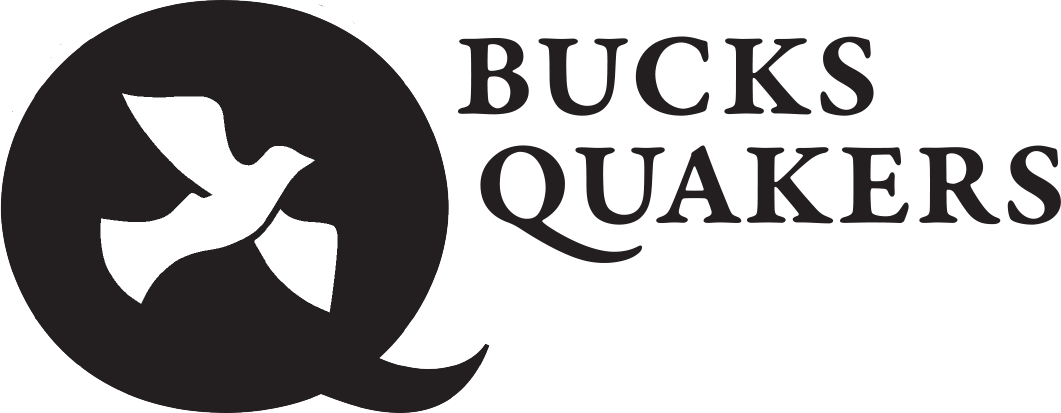Sustaining a Just and Thriving World
Photo credit: Wendy Kane
This article appeared in the March 23rd edition of the Bucks County Courier Times. It is reprinted here by permission of the author.
People of faith live their values. For Quakers, Simplicity, Peace, Integrity, Community, Equality, and Stewardship are central. These are not just abstract ideals; they are principles that shape how we interact with one another and with the world. They also challenge us to think deeply about issues like wealth, responsibility, and the common good.
In today’s world, there is a myth, believed by many, that individuals succeed solely by their own merit—that successful entrepreneurs are self-made, that their wealth is entirely the product of their ingenuity. This belief runs counter to the lived experience of human society and contradicts the most basic values people of faith hold dear.
Christians recognize that the love of money is the root of great evil. The testimony of Stewardship reminds us that wealth, whether material or spiritual, is not a personal possession but something to be used wisely for the benefit of all. The earth’s resources, the institutions of society, and even the knowledge we share are gifts that we hold in trust. No one succeeds in isolation.
Every entrepreneur depends on a foundation they did not build alone. All rely on public roads, an educated workforce, legal protections, monetary systems, and financial stability—essential conditions sustained by the collective efforts of many others. The internet, which made fortunes possible for some of today’s wealthiest individuals, was developed not by private enterprise but through publicly funded research. We celebrate Google, Facebook, Amazon, Tesla, and SpaceX as triumphs of private innovation, yet each of them flourished because America’s thriving economy could afford to buy what they were selling. In addition, public subsidies and government contracts have heavily supported many of them.
Some say that taxation is an unjust confiscation of what successful individuals have “earned.” To deny the role of our society in individual success is to abandon Integrity, to substitute illusion for truth. When the wealthiest members of our society seek ever-lower taxes while public schools, healthcare, and infrastructure deteriorate, they are not merely protecting their wealth—they are withdrawing from the shared responsibility of community. The testimony of Equality challenges us to be responsible. The testimony of Simplicity teaches that wealth should not be pursued as an end in itself.
The early Quakers rejected rigid class distinctions, seeing no person as inherently more valuable than another. Should we not continue to uphold that vision today? Recognizing that a society thrives when all are cared for, they built mutual aid systems. Many were successful in business and became quite wealthy. Their practice of fair pricing, not haggling, and keeping their word made “Quaker” a positive business motif.
No one prospers alone. A thriving society is not just a collection of individuals pursuing personal success—it is a Community bound by shared benefits and responsibilities. Businesses prosper because of workers who keep them running, customers who support them, and the infrastructure that enables commerce. A strong middle class is not just good for those within it; it is good for everyone, including the wealthiest among us. When people can afford homes, education, and healthcare, they contribute to a stable and productive society.
Friends are called to build Peace, and economic justice is part of that work. John Woolman, an 18th-century Quaker merchant and abolitionist, warned against the corrupting influence of unchecked wealth and called for economic practices that uplift rather than exploit. Today, we face a similar moral challenge. Are we, as a society, organizing our economy in a way that prospers all, or are we enthroning greed at the expense of justice?
From a faith perspective, we are not asked to reject prosperity but to ensure that it serves a greater good. Just as early Friends pooled resources to care for those in need, we must recognize that taxation, public investment, and economic policies that promote fairness are not acts of confiscation but of Stewardship. They are part of our collective responsibility to give back and sustain a just and thriving world.
If the most wealthy believe their success is entirely their own, perhaps they have forgotten the interconnectedness of all life. As people of faith, we know better. Wealth, like all gifts, is to be shared wisely, not hoarded. A society that lifts all people, rather than a privileged few, is not just more just—it is more faithful to the Light within us all.
Mind the Light.
Richmond Shreve is a retired business owner and CEO, a member of the Newtown Friends Meeting (Quakers), and lives at Pennswood Village in Newtown.

